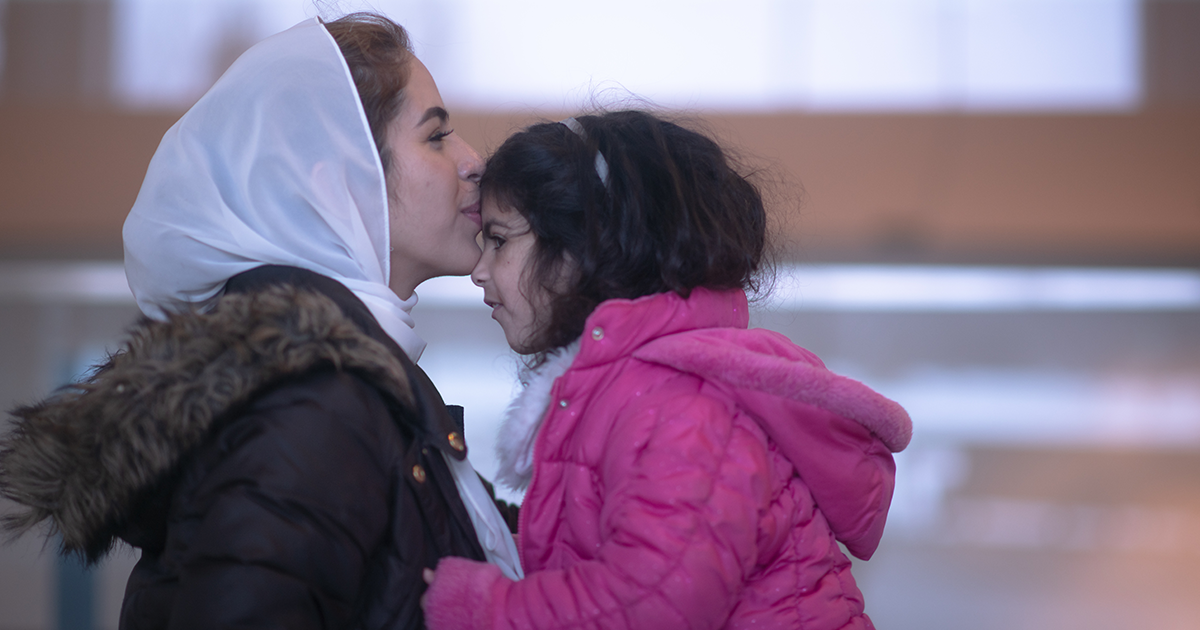Just over one year ago, the world watched as American troops withdrew from Afghanistan. As a result, thousands of Afghan people and families desperately tried to get out before doing so was no longer possible.
For those lucky enough to leave, the difficult journey had just begun as they went to various landing points overseas, military bases where people were housed in large white tents on tarmacs, and an array of resettlement agencies throughout the U.S. They faced new challenges – finding housing, employment, education, healthcare and community – all while learning a new language far from everything they knew.
At Ascentria Care Alliance in Massachusetts, we had to act fast to be prepared. Our resettlement services reached their lowest level during the previous administration, with one office (of three) being closed down.
In October 2021, we knew that more than 75,000 Afghans were on American soil, which exceeded the resettlement services’ capacity. At first, Ascentria agreed to welcome approximately 300 Afghans, but that number soon increased. We were in uncharted territory and needed to identify how to help a lot of people very quickly.
Metaphorically, we were building the plane while flying it. We needed to find enough volunteers to help with resettlement, raise enough money to support the Afghan evacuees, and ensure we could manage the hundreds of tasks associated with resettling each and every individual.
From health assessments to housing inspections and supply-list checks, there is a seemingly endless roster of tasks necessary to complete for every person who enters the country as a refugee – within the first 90 days of their arrival.
Technology to the rescue
When we got word of the vast number of people in need, we had weeks – not months – to prepare. As we worked to pull together community resources, we realized that we needed somewhere to organize them.
During one of our many meetings with an inspiring array of volunteers, we learned of a Boston-based company that had a Community Care Record platform that would allow us to organize the hundred-plus tasks – across multiple agencies and volunteers – and customize fields to reflect the nature of resettlement work, and do so in a way that aligned with government compliance requirements.
Within record time, we worked with Activate Care to set up their platform, providing our 1,500-plus volunteers a place to manage, track and collaborate.
Over the past 12 months, Activate Care’s technology has enabled a more seamless, collaborative and effective way to manage the process of resettlement. And we have yet to fully leverage its potential.
An organizational game-changer
As a relative newcomer to resettlement work, the sheer number of tasks due in the first 90 days is staggering. Typically, our team has had different case files for each domain and rarely has line of sight into the parallel work efforts. Having the ability to design a resettlement workflow, lay out all the required tasks in one place and link to required forms with additional instruction was amazing.
Of greater importance, though, was providing our volunteer teams – who raised nearly $1 million – a clear-cut way to submit a request for reimbursement and tracking the process.
We’ll continue to work with Activate Care to align and streamline our workflows so that staff can focus on providing services, instead of worrying about checking boxes and muddling their way through Excel spreadsheets.
After workflows are in place, we hope to gather data to better understand the impact of the program, where we need to improve our service delivery, and broader questions such as how to mitigate the impact of isolation and improve economic self-sufficiency.
What was accomplished?
The resettlement of refugees requires a lot of people working together day after day. There is no replacement for those “human” hours. But technology played a critical role, enabling people to focus on the work only they could do and facilitating the critical collaboration needed to accomplish this feat.
Now that the intensity of the work is slowing down, we are excited to see what other opportunities technology presents as we welcome new community members from Ukraine and continue our work to ensure our Afghan neighbors have the support they need.
Aimee Mitchell is chief community services officer for Ascentria Care Alliance
